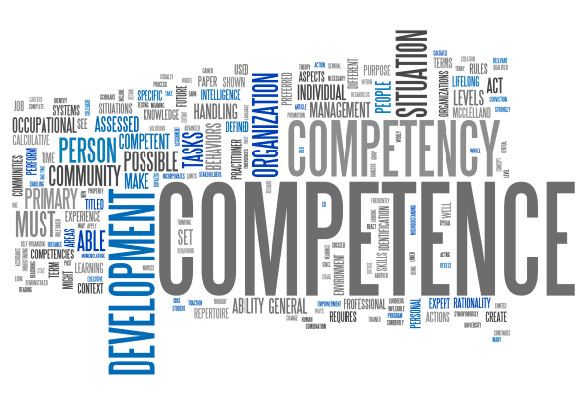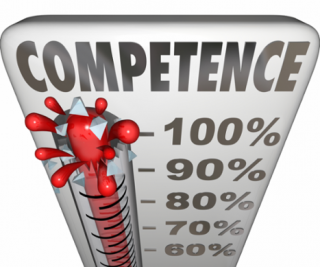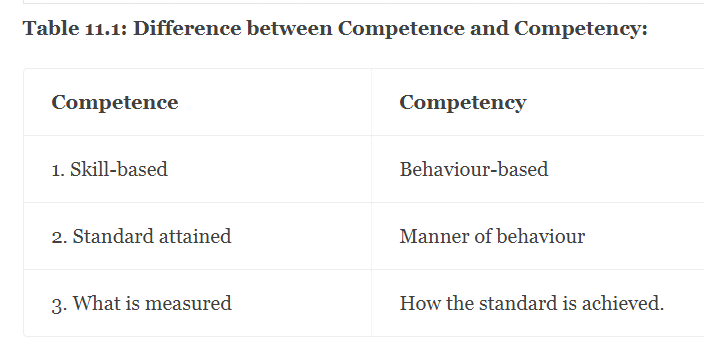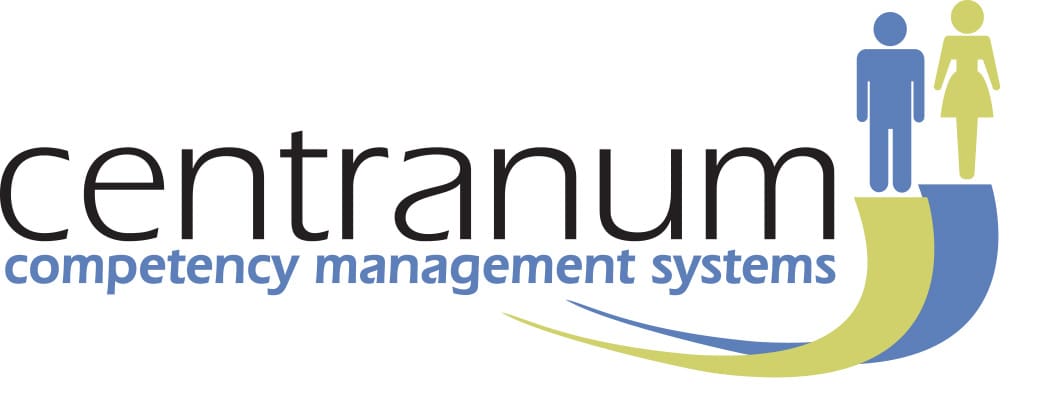
Competence and Competency
Are they the same?
Competence and Competency Defined

Why is Competency important?
Competency is the potential integrator between all HR processes.
But, as the organizational psychologist Paul Sparrow said, when the concepts are not clear organizations “build and integrate HRM systems on a bed of shifting sand”
Download our A-Z guide that lists and clarifies all the concepts and terminology.
Competence and Competency - in the Dictionary
Competence meaning and examples versus competency meaning and examples
Some dictionaries treat them as having the same meaning –
Business Dictionary1 – Competence
- A cluster of related abilities, commitments, knowledge, and skills that enable a person (or an organization) to act effectively in a job or situation.
Competence indicates sufficiency of knowledge and skills that enable someone to act in a wide variety of situations. Because each level of responsibility has its own requirements, competence can occur in any period of a person’s life or at any stage of his or her career.
Business Dictionary – Competency
“See Competence”

The Oxford dictionary has competence as a noun – The ability to do something successfully or efficiently.
In contrast a competency is usually described as an action – a behaviour, skill or use of knowledge.
So competence is a state – the successful achievement of one or more competencies.
Another source2 claims that there is a difference – that competence is about skills, standards and measurement whereas competency is about behaviour, how the standards are achieved.
Since both behaviour and skills, (as opposed to knowledge), are actions the concepts have been confounded.

So – What is the difference between competency and skill?
Some definitions of competency are abbreviated as KSA where K is Knowledge and S is Skill and the A can be ‘abilities’ or sometimes ‘attitudes’.
We define competency as observable Knowledge, Skill and their appropriate Application on the job.
Skill is just one component of competency. Abilities and attitudes are not reliably observable – so best avoided in competency definition.
How are competencies used?
Competencies are statements about the knowledge and skills required for success (competence) in a work or professional role.
What are the 3 types of competencies?
- Values based behaviours typically used in performance management
- Core competencies
- Job specific competencies
They can be split into various categories. Common types of competency with examples are;
- Values of the organisation are those practices critical for mission success – for example Customer Service.
- Core competencies are a type of competency that applies across various roles within an organisation or profession – Communication and Teamwork are examples.
- Functional Competencies are those that apply within a particular organizational function such as HR – example – Job Analysis
- Professional Competencies apply to particular professions such as Accounting – Internal Audit is an example.
- Technical Competencies apply to technical and engineering type roles – an example is Root Cause Fault Analysis
- Clinical Competencies apply to healthcare roles – an example is Patient Confidentiality
- Leadership Competencies are those behaviours and skills that are required to successfully lead a group or organization.
Competencies are normally structured into a heading and overall description with a group of standards (behaviours) that are important in the particular organization.
Competencies become part of a competency model or framework. A large organization will have many competency frameworks covering the various categories, functions and professional/technical disciplines.
How is Competence Used ?

Why is competence important?
Since competence is defined as the achievement of competencies, organizations may choose to define levels of competence. For example Entry Level, Foundation or Advanced. These levels of competence usually have different competency definitions.
Most organizations or disciplines define a level of achievement of the competency set that is required if a person is to be deemed competent – usually a person is deemed competent if achievement is 80% or more. For some critical competencies a 100% achievement is required.
Why are competencies important?
Competencies are important because they provide a role-based success model. Job analysis identifies the knowledge and skills (procedural steps) that are needed for successful job performance.
Typically, education provides only an overall knowledge set that is often not directly relevant to a specific work environment. Both research and experience show that educational learning does not transfer well to the workplace.
Competency models are therefore critical to:
- Ensure people can meet job requirements
- Improve productivity
- Ensure compliance with mandatory regulations
- Improve the quality of work output
- Reduce the risks of errors
- Find staff with the right competencies for projects and roles
However, the significance of focusing on competencies extends beyond operational efficiency. Businesses have recognized that it’s costly to replace staff. Employees with competencies that contribute to growth, but lack opportunities to utilize them, often seek more engaging roles elsewhere. This tendency underscores the importance of integrating competencies into HR strategies.
By aligning employee skills and behaviors with organizational goals, companies can enhance employee engagement and retention. This strategic focus ensures that the workforce is not only equipped to meet immediate job demands but is also poised for long-term growth and contribution to the company’s success. Thus, prioritizing competencies helps create a dynamic environment where talent is nurtured, reducing turnover and fostering a culture of continuous improvement.
Who should be using Competencies
Competency Management is an essential tool for enterprise, especially those involved in knowledge intensive and high reliability activities. Industries such as engineering, technology, healthcare, social services, aviation, transport, oil and gas, mining need to ensure their staff are competent and meet all legal and mandatory requirements in the work activity.
